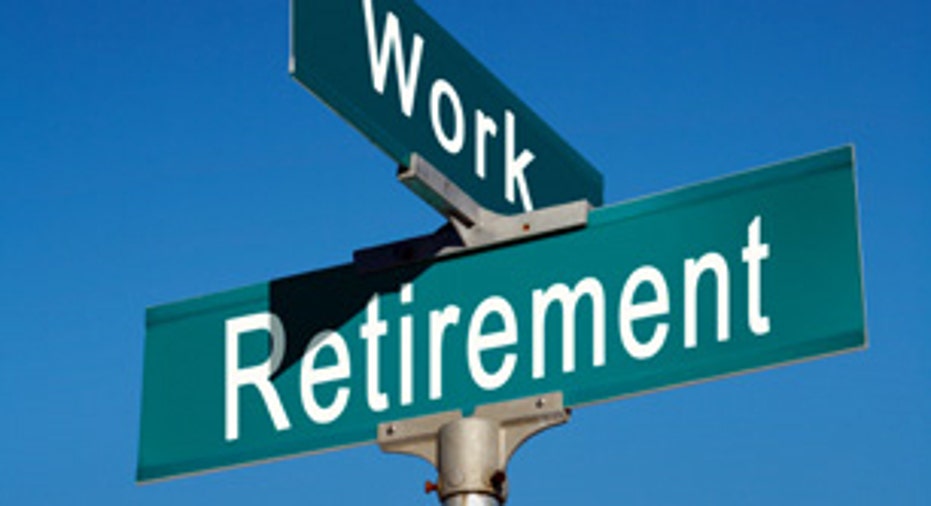6 Tough Questions to Ask Before Retiring

While the biggest factor in deciding when to retire is whether you still need or want to work, there are many other variables to consider to ensure a comfortable and secure life after work.
"There is an upward trend in Americans working beyond age 60," says Gary Burtless, Ph.D, research associate at the Center for Retirement Research at Boston College. "And we've seen an increasing number of people staying in the workforce until age 72."
Burtless says that the incentives within the Social Security system and employer-matched 401(k) plan contributions can make working later in life more financially attractive.
In addition, American's confidence in their ability to retire comfortably is at an all time-low. According to the 2012 Retirement Confidence Survey by the Employee Benefit Research Institute (ERBI), 60 percent of workers report having less than $25,000 in savings or retirement assets.
Beyond the financial retirement considerations, Elizabeth F. Fideler, Ed.D., researcher and author of "Women Still at Work: Professionals Over Sixty and On the Job" and a forthcoming book on aging men in the workforce, found that a main reason would-be retirees choose to keep working beyond age 60 is that they enjoy the work and the feeling they are contributing and making a difference.
How can you know whether you're ready for retirement? Asking yourself these six questions may help. Any "no" answers may mean it's worth waiting a little longer to retire.
1. Is your credit in order?
"High interest debt on credit cards should be paid off," says John Ulzheimer, president of SmartCredit.com. "Otherwise it simply doesn't make sense to retire."
Ulzheimer notes that carrying debt with interest rates higher than your investment yields can lead to losing money every month.
"It's not uncommon to have some small vacation rental or remaining mortgage debt upon retirement," Ulzheimer says. "But this interest is tax-deductible and low-priced, with an end in sight in comparison to credit card debt."
Ulzheimer also recommends not applying for any new credit and cleaning up any default or collection accounts remaining on your credit report. "Once you've stopped working, you will have less capacity to pay off debts and you certainly don't want collections phone calls," he says.
2. Have you maxed out your retirement benefits?
"The more money you can put in your monthly retirement income bucket by maximizing the income from all different sources, the better off you will be" says Steve Repak, CFP, author of "Dollars and Uncommon Sense." "And, currently, a lot of it depends on delaying retirement."
Repak notes that your Social Security benefits increase until you reach age 70, and that if your employer provides a pension or matches any investment contributions you make, such as those made to a 401(k), it may pay to keep working and let your accounts continue growing.
3. Is your health declining?
Good health is another reason Americans may choose to work longer, according to Fideler.
As a healthy worker, you may find it beneficial to keep your job -- and health insurance -- until age 65 when Medicare can cover some of your health care expenses. If you retire before age 65, you may pay significantly more to keep health coverage through the COBRA program or your spouse's employee health plan, says Repak.
"Maintain as active a lifestyle as possible to save money on health care costs now and later," advises Dr. Paul Terpeluk, D.O., medical director of employee health services at the Cleveland Clinic. "You will avoid spending on prescription and over-the-counter medications, procedures and co-pays for the major sedentary-lifestyle diseases such as obesity, diabetes, hypertension, high cholesterol and heart disease."
4. Are you working out of choice?
In the ERBI survey, retirees who worked gave some of these financial reasons:
"Obviously, if you have more income than expenses, then you have the choice to work at something you enjoy or are passionate about," Repak says.
"Well-educated, career workers over 60 are more likely to love what they do, find meaning in their work and enjoy their patients, clients and/or students," says Fideler, who notes that many gradually cut back to part-time work or become consultants or self-employed. "The decision is not irrevocable -- if they find themselves bored, they return to work."
5. Have you minimized your income needs?
"The many retirement calculators and savings and spending formulas don't work for everyone," says Repak. "A simple list of monthly retirement expenses and monthly retirement income can show you whether you have enough to retire or not. Try living that budget for a few months to see if it's realistic," advises Repak.
If you still have college expenses, dependent family members or other costly obligations, waiting longer to retire may help decrease these expenses, according to the ERBI study.
6. Do you have enough cash?
Repak advises having at least two years of retirement expenses available in a liquid, insured savings account with the best savings rates you can find. This way, if you need money for a large household repair, car mishap or health emergency, you will not have to raid your retirement accounts or turn to credit cards.
But Repak says you shouldn't keep more in liquid assets than you need to.
"Liquid, safe money is not currently earning interest ahead of inflation," says Repak. "All the rest of your assets should remain in your retirement investment vehicles."
The original article can be found at Money-Rates.com:6 tough questions to ask before retiring



















